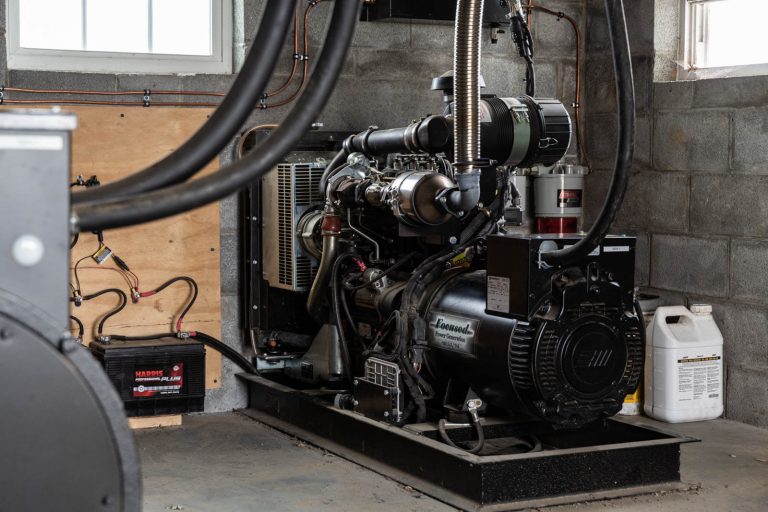
Engine blow-by is a by-product of all internal combustion engines. It refers to the leakage of combustion gases past the piston rings in an engine and into the crankcase instead of being expelled through the exhaust system. Excessive blowby will negatively impact oil health and typically indicates reduced engine performance.
While a small amount of blow-by is considered normal in any engine (no engine maintains a perfect piston ring seal all the time), excessive blow-by indicates piston and cylinder wear or more serious problems.
Today we’re going to take a look at this important topic, focusing on crankcase blow by in diesel engines, specifically off-highway diesel engines.
We’ll provide an all-encompassing rundown of engine blow by, looking at what causes it, the signs of the problem, and how to prevent it.
Ready to go?
Let’s dive in!
Definitions are important! Let’s make sure that we understand a few key terms as we look at the topic of engine blow-by.
Engine blow-by can be a problem when it causes elevated crankcase pressure that triggers oil leaks and other performance issues. But engine emissions regulations have led engine manufacturers to modify engine design, and this includes updates to crankcase ventilation systems.
One of the most significant recent advancements in diesel engine technology has been the use of crankcase breather filters to manage blow-by gases. In older designs, these gases were vented directly into the atmosphere through an external breather vent tube. However, due to increasingly stringent EPA emissions regulations, modern engines now recirculate these gases back into the intake system.
So how does this impact engine maintenance today?
Proper maintenance of the breather system and crankcase ventilation components is now ESSENTIAL to avoid the problems of excessive crankcase pressure!
Excessive engine blow-by is usually caused by one or more of the following:
What are the signs of excessive engine blow-by in a diesel engine? You may know them already, but they include the following:
All of these signs can indicate other problems as well, but engine blow-by is a definite possibility. And in the newer Tier 3 and Tier 4 engines, checking your Crankcase Breather Filter should be a top priority.
As you probably already know, ignoring engine blow-by can lead to severe consequences, including the following:
We often hear this question. And the answer largely depends on how soon you identify the problem.
The lifespan of an engine with excessive blow-by will also vary based on how quickly the problem worsens. Pulsing vapor or rapidly increasing vapor indicates a more serious problem, such as a broken piston ring or melted piston. Gradually increasing vapor may not be a significant issue, as it is likely routine wear.
But either way, if left unaddressed, blow-by can be an indication of premature engine failure. Early detection and maintenance are the key to taking care of your engine properly!
Don’t risk engine failure! If you suspect that your engine has a problem, get it checked out today by a certified professional such as HooverTec!
So how do we prevent excessive engine blow-by and excessive crankcase pressure in the first place? As in a lot of things, proper maintenance is key. Here are a few things to keep on your checklist:
Interested in reading more?
For additional information and technical guidance, check out the HooverTec blog for in-depth resources on diesel engine maintenance and troubleshooting.
Engine blow-by is a natural occurrence, but excessive blow-by and crankcase pressure indicate serious engine problems.
By understanding the causes, recognizing the warning signs, and implementing preventative maintenance such as maintaining your crankcase breather filter and air intake system, you can extend the life of your diesel engine and prevent inefficient operation and engine failure.
If you suspect your engine is suffering from excessive blow-by, don’t wait—take action to diagnose and resolve the issue today!
Need professional assistance with your diesel engine blow-by problem?
We’re here to help!